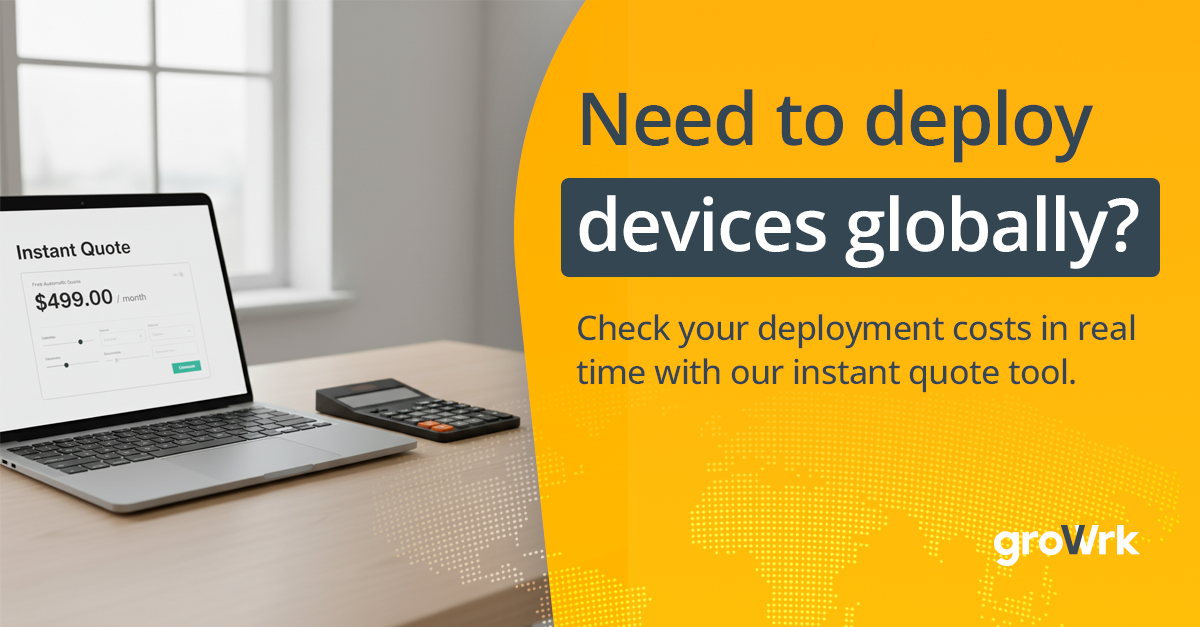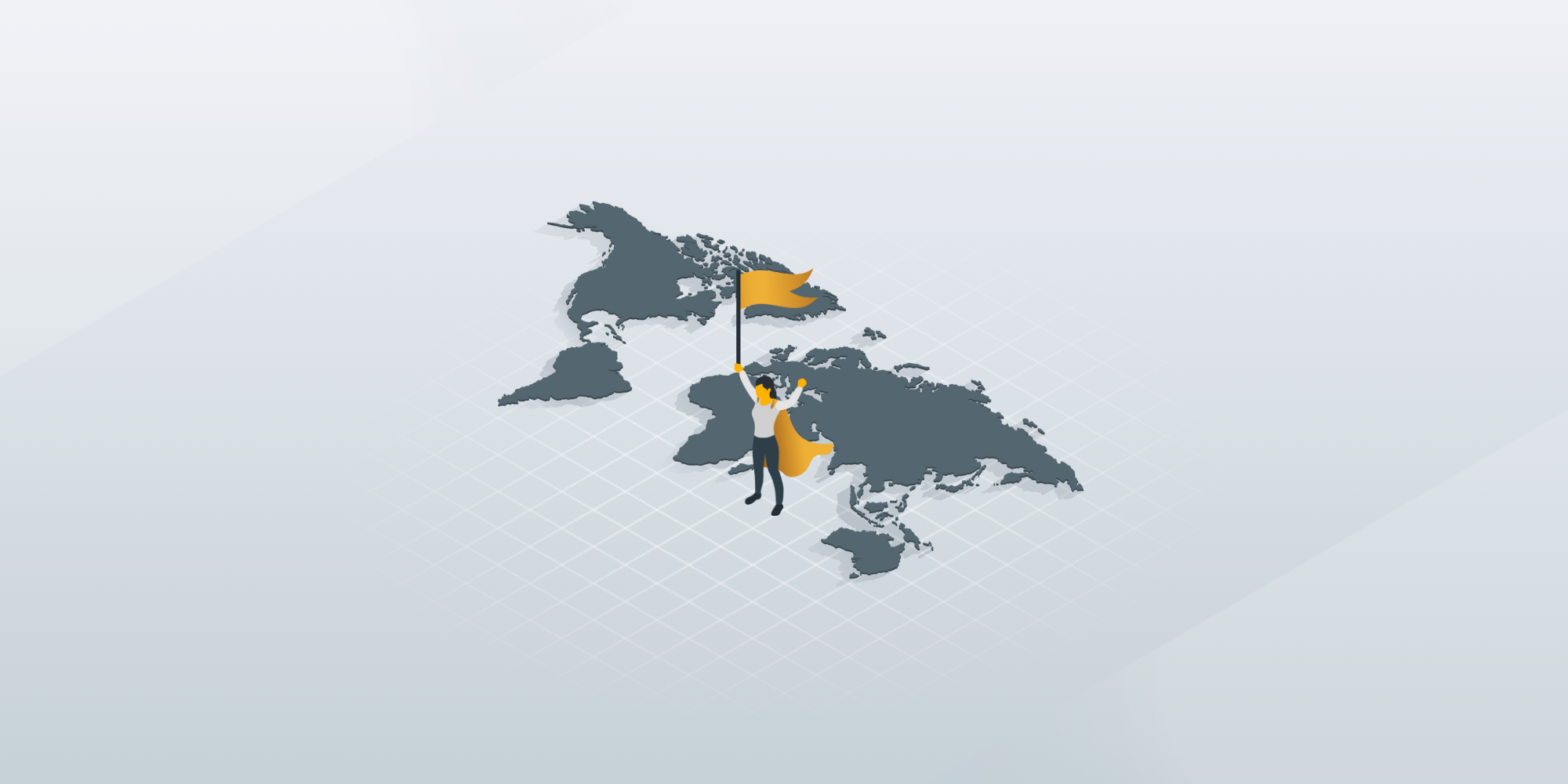Managed Procurement Services: A Guide to Strategic Sourcing
 GroWrk Team
GroWrk Team
Procurement has shifted from an administrative task to a strategic function that drives efficiency and value. With a third of businesses citing supply chain disruptions and inflation as major risks, Managed Procurement Services are gaining traction for streamlining sourcing and supplier management. Effective procurement now focuses on creating value, managing risks, and fostering innovation.
Understanding Managed Procurement Services enables businesses to leverage them for cost savings, risk management, and operational efficiency. Partnering with specialized providers allows companies to optimize procurement processes and focus on core competencies. This shift enhances procurement operations and positions businesses for strategic growth in a competitive market.
Key takeaways
-
Managed Procurement Services (MPS) enhance operational efficiency, cost savings, and risk management by outsourcing complex procurement tasks to specialized providers.
-
Technology, including AI and advanced analytics, plays a critical role in transforming procurement processes and improving decision-making and supplier management.
-
Effective supplier management, strategic sourcing, and spend analysis are core components of MPS that contribute to significant cost reductions and optimized procurement function strategies.
Understanding managed procurement services

Managed Procurement Services (MPS) offer businesses a way to enhance procurement operations by outsourcing complex tasks to specialized providers. This approach allows companies to focus on their core business activities while benefiting from the deep procurement function expertise that MPS providers offer.
The role of procurement and supply chain has evolved into a strategic function that enhances efficiency and competitive advantage, particularly for the chief procurement officer.
Definition and scope
Managed Procurement Services aim to improve efficiency, reduce costs, and ensure compliance with IT regulations in procurement operations. Organizations can choose from several procurement models, each offering unique advantages that align with their specific needs and strategic goals. Engagement models in managed procurement services are customized to meet organizations' specific needs, making flexibility essential.
A deep knowledge of procurement function regulations and market trends is crucial for success in managed procurement. Effective procurement management requires a deep understanding of market trends and customer needs. Leveraging MPS providers’ expertise helps businesses navigate procurement complexities and significantly improve efficiency and cost savings.
Key benefits of managed procurement services
The role of managed procurement in IT offers numerous advantages that can transform your business operations. Here are the key benefits:
-
Significant Cost Savings: MPS providers help organizations identify potential savings and optimize procurement expenditure, leading to substantial cost reductions.
-
Operational Efficiency: By streamlining processes and enhancing procurement efficiency, businesses can focus on their core activities and gain a competitive edge.
-
Deep Procurement Expertise: MPS providers offer specialized knowledge in strategic IT equipment sourcing, supplier relationship management, and contract management, ensuring a more effective procurement process.
-
Focus on Core Activities: Outsourcing complex procurement tasks allows businesses to concentrate on their primary operations, improving overall performance and competitiveness.
Utilizing managed procurement services can improve supply chain operations and significant strategic value for your organization.
Get an instant quote
The role of technology in managed procurement

Technology is crucial in transforming managed procurement services, enhancing process efficiency and visibility across the procurement lifecycle. AI, machine learning, and data analytics are essential advanced technologies that streamline tasks, improve transparency, and provide actionable insights for better decision-making.
Leveraging AI and ML (machine learning)
Artificial intelligence and machine learning are revolutionizing procurement by enhancing decision-making and optimizing various processes. GroWrk, for instance, uses artificial intelligence to power its real-time chatbot, which provides instant support to distributed teams and minimizes response times. Implementing AI in procurement leads to increased efficiency, allowing teams to focus more on strategic activities rather than routine tasks.
Overall, AI and machine learning streamline procurement processes and enhance the accuracy of insights and supplier selection, driving business success. Using these advanced technologies, businesses can achieve significant cost savings, improve operational efficiency, and gain a competitive edge in the market.
Advanced analytics
Advanced analytics is critical in providing actionable insights that enhance decision-making in procurement operations. A healthcare provider, for example, enhanced procurement insights through data analytics, significantly improving supplier performance metrics. Successful adaptation to global market changes requires procurement organizations to enhance transparency, which is linked to improved operational effectiveness and supplier trust.
Businesses can save money through lower costs, better supplier deals, and fewer mistakes in procurement, thus improving their bottom line. Data analytics allows organizations to gain valuable insights into procurement processes, make informed decisions, and optimize their strategies.
10 core components of managed procurement services

Effective managed procurement services involve several core components that enhance efficiency in procurement activities. These components include:
-
Supplier management
-
Spend analysis
-
Contract management
-
Purchase order management
-
Procurement automation
-
Strategic sourcing
-
Risk management
-
Invoice processing
-
Performance reporting
These elements are vital in optimizing procurement operations and achieving cost savings.
1) Supplier management

Effective supplier management is about more than just building relationships; it includes monitoring supplier performance to ensure compliance with contracts and regulations. This involves ongoing oversight and open communication to enhance problem-solving and trust. Negotiation skills are crucial for securing favorable deals.
2) Spend analysis & cost optimization

Utilizing spend analysis helps organizations identify patterns in purchasing and uncover areas for potential savings. Conducting spend analysis helps organizations identify potential areas for savings and optimize their overall procurement expenditure. By analyzing procurement spend, organizations can identify areas for cost reduction and improve their budgeting strategies. Machine learning algorithms continuously analyze procurement data to identify patterns and adapt to changes for improved decision-making.
3) Contract management

Contract management is a crucial component of managed procurement services, as it involves ongoing oversight to mitigate risks and ensure adherence to terms throughout the contract’s life. Effective contract management requires a deep understanding of procurement regulations and market trends, allowing organizations to negotiate favorable terms and protect their interests.
4) Purchase order management

Purchase order management encompasses creating, processing, and tracking purchase orders efficiently, ensuring procurement operations run smoothly. Organizations can reduce lead times, improve accuracy, and enhance procurement efficiency by streamlining the purchase order process.
5) Procurement automation

Procurement automation involves utilizing technology and software to streamline purchasing processes, reducing the need for manual intervention. Automation can lead to significant cost savings, improved accuracy, and enhanced efficiency in procurement operations.
6) Strategic sourcing

Strategic sourcing is the process of identifying and selecting the best suppliers based on cost, quality, and reliability. Effective strategic sourcing involves analyzing supplier capabilities, negotiating favorable terms, and aligning supplier performance with organizational goals.
7) Risk management & compliance

Risk management and compliance are essential components of managed procurement services, ensuring regulatory compliance and mitigating procurement risks. Implementing robust risk management strategies helps organizations protect their interests and maintain a competitive edge.
8) Inventory & supply chain management

Inventory and supply chain management involves managing stock levels and logistics to prevent shortages and ensure the timely delivery of goods and services. Effective inventory management can lead to significant cost savings, improved efficiency, and enhanced procurement operations.
9) Invoice processing & payments

Invoice processing and payments are critical components of the procurement process, as well as handling supplier invoices and ensuring timely payments. Streamlining these processes helps organizations reduce errors, improve cash flow, and enhance efficiency.
10) Performance reporting & analytics

Performance reporting and analytics generate insights that optimize procurement decisions and enhance efficiency. Advanced analytics provides organizations with valuable insights, enabling informed decisions and better results.
Different models of managed procurement services
Various models tailored to a business’s unique requirements can be used to approach managed procurement services. These models include the functional design model, ad-hoc resource model, and category-based resource model. Each offers unique advantages that align with specific business needs and strategic goals.
Functional design model
In the functional design model, businesses determine which portions of the procurement process they wish to outsource, allowing for tailored engagement. This model enables companies to selectively outsource parts of the procurement process while maintaining control over sensitive areas.
Ad-Hoc resource model
The ad hoc resource model is ideal for businesses that require on-demand support for specific projects without committing to a long-term procurement strategy. This model provides flexible support, enabling businesses to adapt procurement efforts quickly to meet specific project demands.
Category-based resource model
The category-based resource model focuses on outsourcing procurement activities based on specific categories, allowing for targeted management and accountability. Segmenting procurement tasks by categories enhances specialization and results in measurable performance improvements.
Challenges in traditional procurement practices

Traditional procurement practices often face several challenges, including inefficiency, lack of transparency, difficulty adapting to global market changes, supplier management issues, and high costs and budget overruns. Here are some procurement challenges that businesses face in traditional practices:
Inefficiency and lack of transparency
A significant issue in traditional procurement is the lack of transparency, which can prevent suppliers from delivering optimal offers. Around 60% of procurement leaders identify inadequate transparency between finance and procurement as a significant risk affecting supplier relationships and overall business performance.
Adaptation to global market changes
Traditional procurement practices struggle to adapt to rapid global market changes, often resulting in missed opportunities and inefficiencies. Managed procurement services offer the agility needed to effectively respond to global market shifts, ensuring competitiveness and efficiency.
Supplier management issues
Supplier management issues in traditional procurement include difficulty in maintaining relationships, evaluating vendor performance, and ensuring supplier reliability. Managed procurement services address these challenges by implementing robust supplier relationship management strategies and performance monitoring.
High costs & budget overruns
Limited spend visibility and inefficient negotiations in traditional procurement often lead to uncontrolled expenses and missed cost-saving opportunities. Managed procurement services help organizations achieve significant savings by optimizing spend management and reducing operational costs.
Essential skills and experience for effective procurement

Effective procurement management requires expertise in several areas, including strategic sourcing, supplier relationship management, contract negotiation, and spend analysis. Procurement service providers with experience in managing global supply chains can also benefit from this.
Strategic sourcing expertise
Strategic sourcing is a critical component of managed procurement services. It encompasses the systematic evaluation of suppliers and the negotiation of optimal terms. Effective strategic sourcing requires deep procurement expertise, industry knowledge, analytical skills, and negotiation capabilities to ensure advantageous supplier agreements.
Supplier relationship management
Building and maintaining strong relationships with suppliers is key to ensuring reliable performance. Effective supplier communication is crucial for monitoring performance and addressing issues.
Evaluating managed procurement service providers
When evaluating managed procurement service providers, it is essential to consider their track record, reputation, and procurement methodology.
Providers like EmpoweringCPO offer tailored solutions that address each organization's unique needs.
Track record and reputation
Assess a provider’s expertise through their track record and ability to meet specific needs. Potential providers should also be evaluated based on their operational capabilities, client satisfaction levels, and market reputation.
Client testimonials and industry ratings are valuable indicators of a provider’s reliability and performance.
Procurement methodology
Understanding a procurement provider’s methodology gives insight into handling procurement operations and ensuring alignment with business objectives. Aligning the procurement provider’s methodology with business objectives and values indicates a good fit.
Key factors include supplier management, risk management, compliance, and procurement data management.
GroWrk: revolutionizing IT Asset Lifecycle Management
GroWrk is a global IT lifecycle management platform that automates every stage of the IT asset lifecycle. By integrating artificial intelligence to automate the IT asset lifecycle, GroWrk allows users to procure, configure, and deploy IT devices from one platform.
Comprehensive IT equipment management solutions
GroWrk provides end-to-end solutions for managing IT equipment procurement, configuration, deployment, and lifecycle. Its service encompasses all stages of IT equipment management, ensuring a seamless lifecycle.
Additionally, GroWrk provides advanced analytics and reporting on equipment usage, lifecycle management costs, procurement costs, SLA reporting, and order history.
Advanced security features
GroWrk includes mobile device management (MDM) and remote control to enhance security. These advanced security functionalities are crucial in protecting IT assets within managed procurement services.
Global reach and support
GroWrk guarantees uniform service quality across various geographic locations (in 150 countries), allowing organizations to manage their IT needs consistently worldwide. With extensive global support, GroWrk aids organizations in seamlessly managing their IT assets across multiple locations. GroWrk has unrivaled global reach across 150 countries. Sign up now!
Frequently Asked Questions
What are the 4 types of procurement?
The four types of procurement in supply chain management are direct procurement, indirect procurement, goods procurement, and services procurement. Understanding these types is essential for optimizing your procurement strategy.
What are managed procurement services?
Managed procurement services (MPS) leverage expert outsourcing to optimize procurement tasks and supplier relationships, enhancing both efficiency and strategic value for organizations. This strategic solution simplifies complex purchasing processes, allowing businesses to focus on core activities.
How do Managed Procurement Services benefit businesses?
Managed Procurement Services provide businesses with cost savings, enhanced operational efficiency, effective risk management, and specialized procurement expertise. These advantages ultimately drive better financial and operational performance.
What role does technology play in managed procurement?
The technology significantly enhances managed procurement by improving process efficiency, increasing visibility, and facilitating better decision-making through tools like AI, machine learning, and data analytics.






